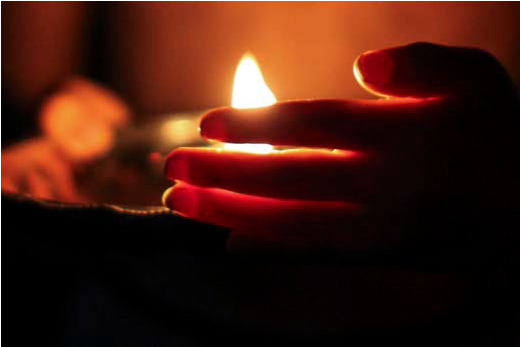Clinic 8 is the main and very busy oncology outpatient’s clinic at Charing Cross Hospital. For a short description, see Day et al (2016) (see also White Rose). The bringing in and sharing of home-baked cakes, biscuits, breads and the like is an everyday occurrence among hospital staff and visitors to Maggie’s. Sharing becomes a kind of mutualism that keeps everyone going (see Knights of the Oblong Table and the note on ‘mutualism’ in The Hospital Tree).
For a previous generation of Irish nurses and an earlier view of the stratified, imperial workforce in the NHS, see Melissa Llewellyn Davies (dir.) 1986 documentary, Nurses: The Team on B6.
Many of the hospital staff are epic travellers (see Magic Words) and some of this travelling relates to cosmopolitan connections among them.
“You get hit,”
she says.
“When you ask how are you?
and they’ve had bad news
sometimes they cry in front of you.”
She’s been working in Clinic 8
for two years now,
taking patients’ bloods, urine,
calling them to the Consultant.
“The stories you hear..
Makes you think what would I do?”
She holds me in her strong gaze,
warm, generous,
rooted in earth.
Says simply:
“You cannot be working
and cry every day.
You’ll cry forever.”
She’s learned resilience –
in Palliative Care at St Charles
and, pregnant with her son,
caring for her mother
when she’s diagnosed with cancer.
“If you are not strong enough inside
you will break down,”
she says firmly.
But still.
Those who face their mortality
with no family round them
pierce the vital armour.
“Sometimes we cry,”
she says,
the blunt truth a blow
I don’t see coming.
It is her mother
who encourages her to do nursing,
tells her she has the power
to intercede on the patient’s behalf,
give voice to the voiceless.
“There’s nothing you can’t do,”
she insists.
“You can do it!”
echoes her Dad.
But she wanted to wait
till the children were older
and chooses to do
Health and Social Care Level 5
over two years
because she has a job
and a house to run.
She’s almost finished.
‘It’s all to do with management,”
she smiles,
prepares her children in advance
so they can prepare themselves.
They wash the dishes, hoover,
but meal times are golden.
“It’s important I cook for them.”
Jollof Rice is a favourite –
even her veggie-hating boy can be tricked
into munching plant life
when it’s hidden in the dish.
Frying is out, but she understands
their palate is different and will change.
“Once in a while they can have McDonalds,”
she grins.
Every year she takes them to Paris
where her father,
a high ranking army officer,
once made the family home.
In his retirement he’s gone back
to Ghana,
does his best to lure them over.
She speaks English, French,
and thanks to him
bits of dialects from all over Ghana.
“I’ve been places.”
The Asante ancestry
shines in the fine bones,
the elegant weave sculpting the head
in the likeness of a goddess.
I am in awe.
“I have a good hairdresser,”
she laughs.
They are a team of six
with two nurses and a manager.
One of the team
Marcia
whose picture looms large
in the corridor
brought in a banana cake
to share with staff and patients.
Unwittingly
I met Marcia,
looking for Florence
who was on lunch break.
She asked me my business
and satisfied I had good cause,
instructed me to sit and wait.
Not wanting to cut short a lunch break,
I protested –
then did as I was told.
She laughs when I tell her this.
Marcia, she says,
cannot tolerate nonsense.
If you offend her you deal with it
straightaway.
“Patients need to see us working together,”
she affirms,
“free spirits moving around.”
Nursing is in the blood.
She was named after her Dad’s auntie –
a nurse in Ghana –
their namesake an icon
of the Nursing Profession.
Her elder sister is a Community Nurse.
They do not share the status
of The Lady with the Lamp
yet follow her dictate of hard work,
their acts of compassion unsung.
They are like many others
who answer the call
everyday heroines.
